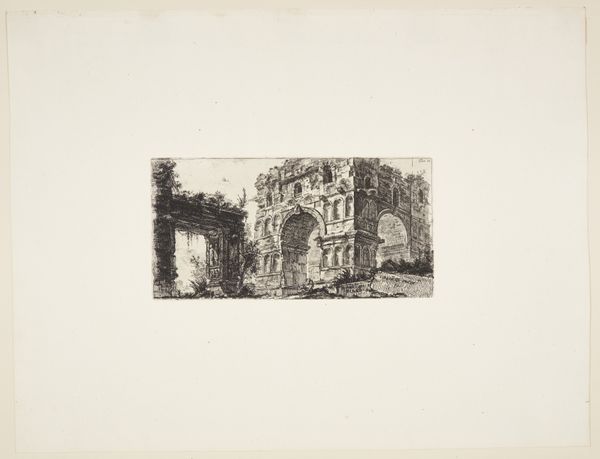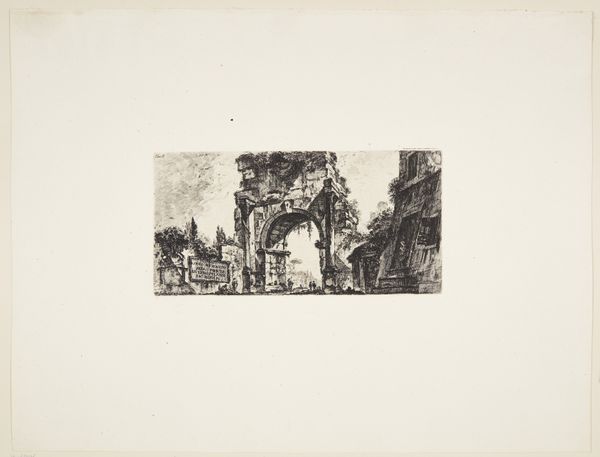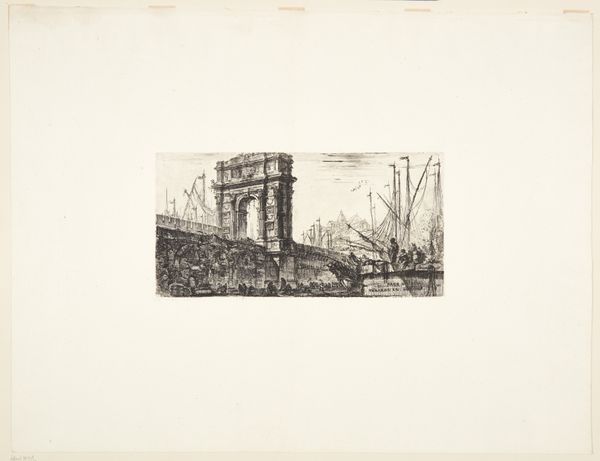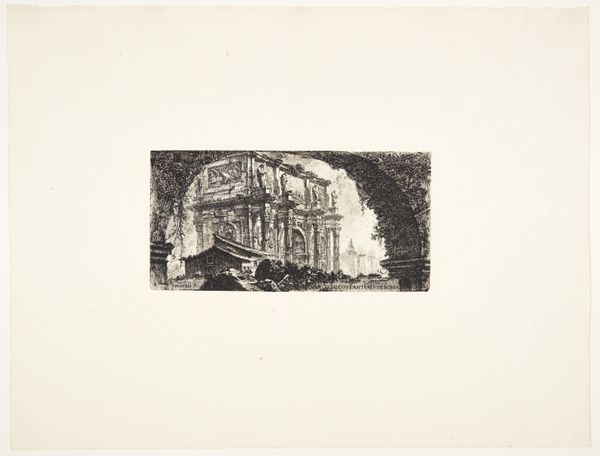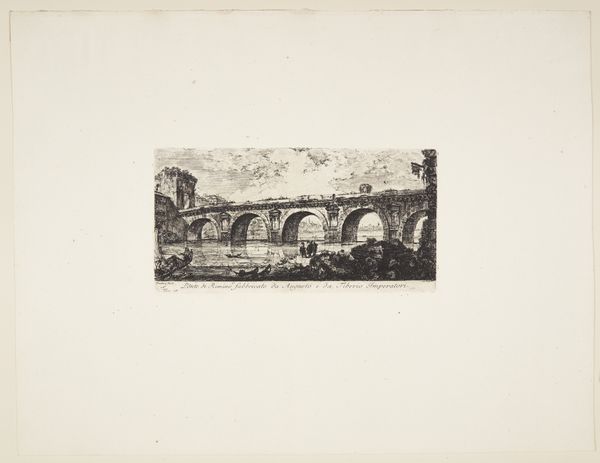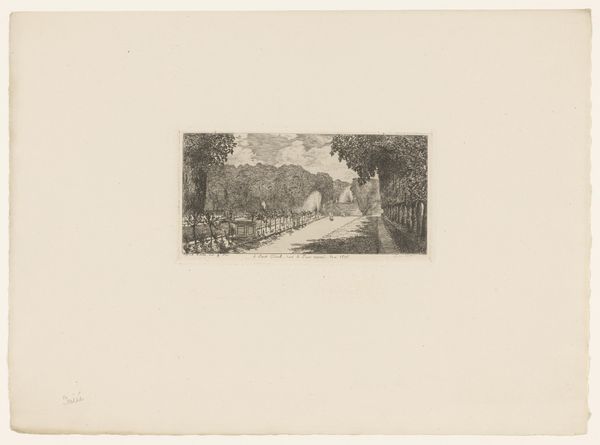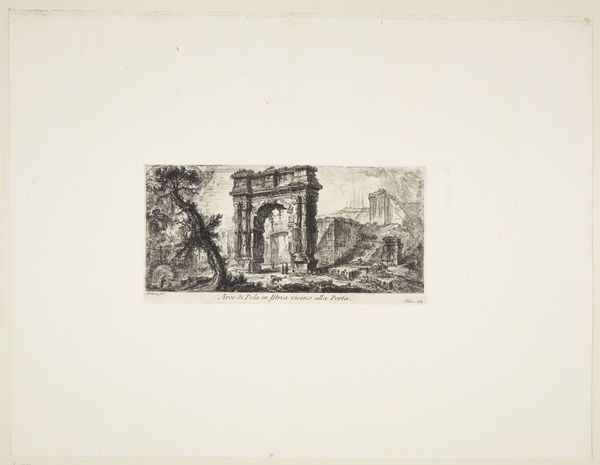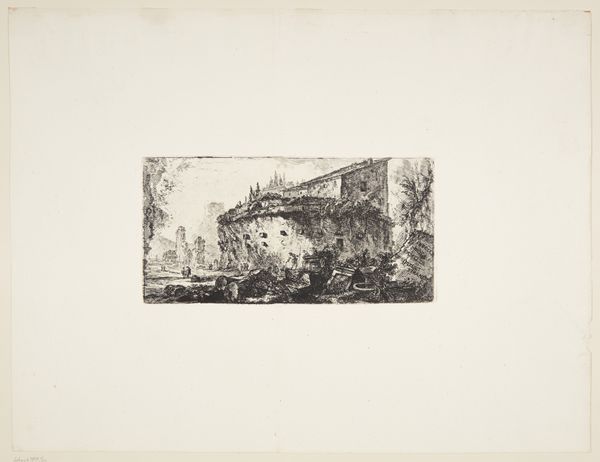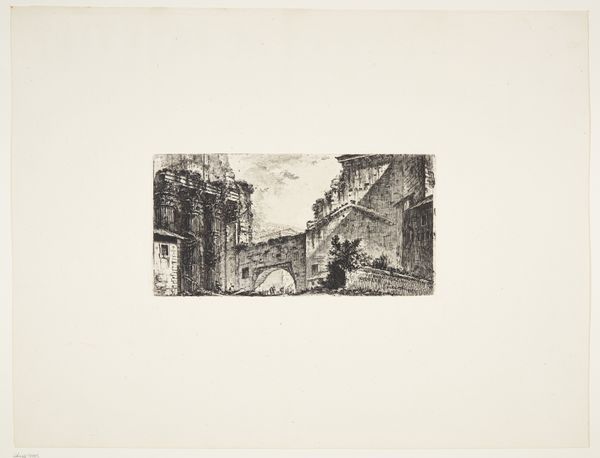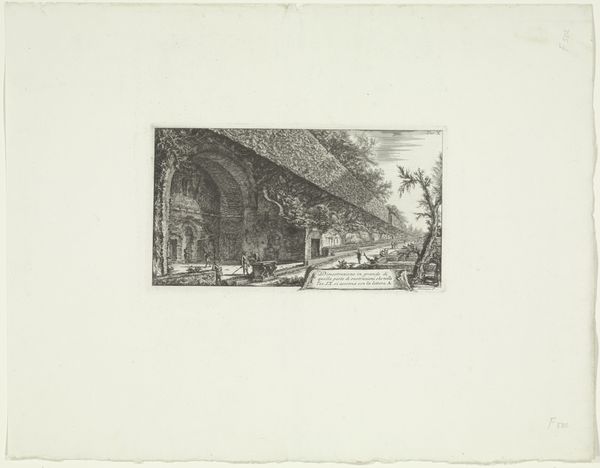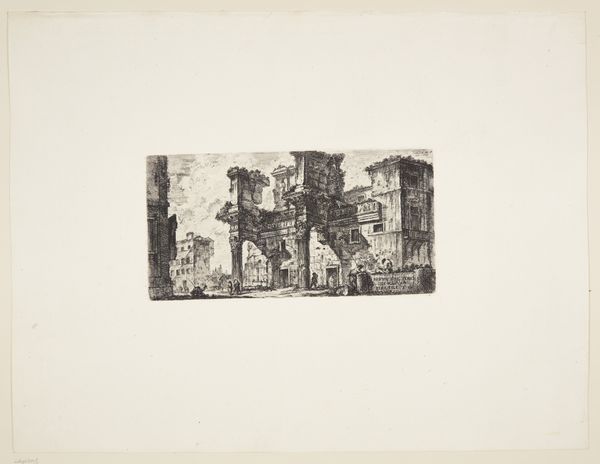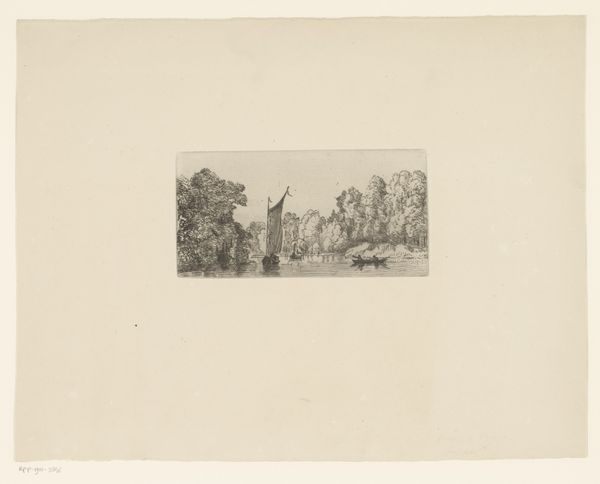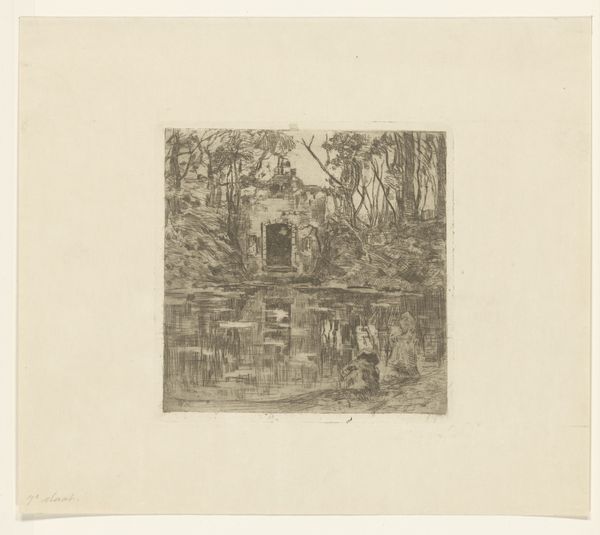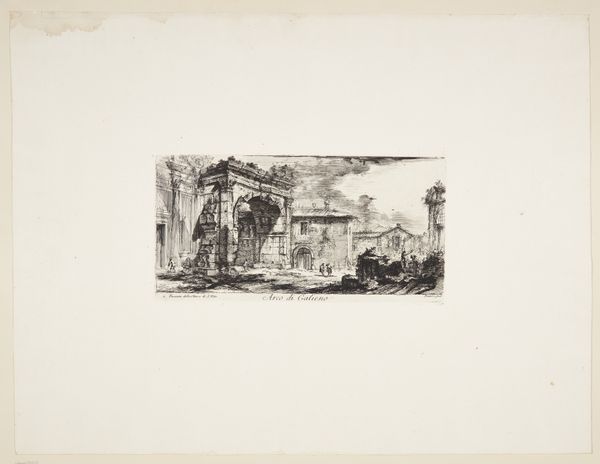
print, engraving, architecture
# print
#
landscape
#
classical-realism
#
ancient-mediterranean
#
line
#
cityscape
#
engraving
#
architecture
Dimensions: 132 mm (height) x 263 mm (width) (plademaal)
Giovanni Battista Piranesi created this print of the Arch of Titus in Rome sometime in the mid-18th century. As an Italian artist, architect, and antiquarian, Piranesi was deeply invested in the grandeur and historical weight of Roman antiquity. This print depicts the Arch not merely as a monument, but as a space enmeshed within the fabric of everyday life. Look at how Piranesi situates the Arch, the details suggesting its integration into the contemporary urban landscape, a kind of dialogue between past and present. The crumbling edifice speaks to the transience of power, and invites us to consider whose stories get told. Consider too the relationship between the artist, his cultural heritage, and the act of representation. Piranesi isn't just documenting a historical site, he's actively participating in the construction of a narrative. What does it mean to revisit and reimagine these symbols of power, especially when considering the social and political contexts in which he was operating? This image becomes a meditation on memory, power, and the very act of seeing.
Comments
No comments
Be the first to comment and join the conversation on the ultimate creative platform.
